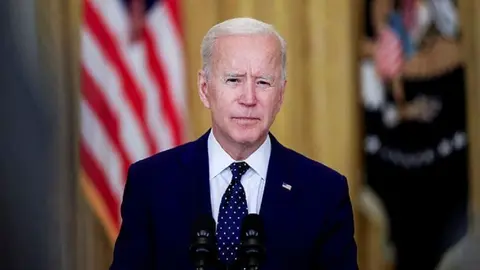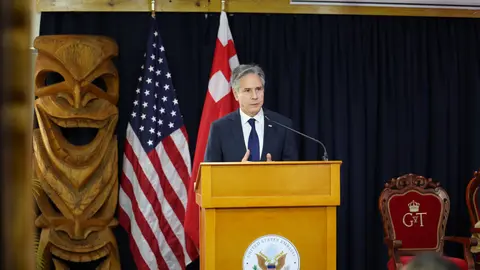US calls on China to work more "together" to solve global problems

US Commerce Secretary Gina Raimondo on Tuesday called on China's premier to work together to solve global issues such as climate change and the rise of artificial intelligence.
Raimondo's trip to China is part of Washington's attempt in recent months to calm tensions with the world's second-largest economy.
She held another round of talks on Tuesday with senior Chinese officials, including Premier Li Qiang, emphasising the importance of open communication between the two powers.
Raimondo pointed to areas of "global concern" such as climate change, artificial intelligence or the fentanyl crisis and told Li that Washington wants to "work with you as two global powers to do what is right for all of humanity".
"The world expects us to do more, together, to solve these problems," he said. Raimondo also reiterated the US position that it is not seeking to disconnect its economy from China's.
"We seek to maintain our $700 billion trade relationship with China, and we hope that relationship can provide stability for the overall relationship," she said.
The US official also met with China's Vice Premier He Lifeng on Tuesday and described the trade relationship between the two countries as "one of the most important" in the world.
"Managing that relationship responsibly is critical for our two nations and, indeed, for the entire world," he said during part of the meeting open to reporters.
He also stressed that the US "will never compromise on protecting our national security", but insisted that Washington does not seek to "hold back China's economy"
For his part, the vice premier said Beijing is willing to work on "new positive efforts to maintain economic consensus and enhance cooperation".
Raimondo is scheduled to visit the country's economic capital Shanghai on Tuesday before returning to the United States on Wednesday.
"Reducing misunderstanding"
Relations between the two powers are at their lowest level in decades, in part because of US trade restrictions.
This month US President Joe Biden issued an executive order to restrict certain US investments in China in sensitive high-tech areas, a move Beijing sees as "anti-globalisation".
The new rules, due to be implemented next year, affect sectors such as semiconductors and artificial intelligence.
However, Raimondo's trip also serves as a way for the US to have more open discussions with Beijing on these policies.
In a meeting on Monday between the US secretary and Commerce Minister Wang Wentao, the two agreed to create what Washington calls an "information exchange" to "reduce misunderstanding of US national security policies".
However, Wang said he had "serious concerns" about Washington's trade restrictions on Chinese companies, particularly tariffs on Chinese goods or "discriminatory subsidies".
Washington defends these policies as necessary to "de-risk" its supply chains, but Wang warned that they "run counter to market rules and the principle of fair competition, and will only harm the security and stability of global industrial and supply chains".










